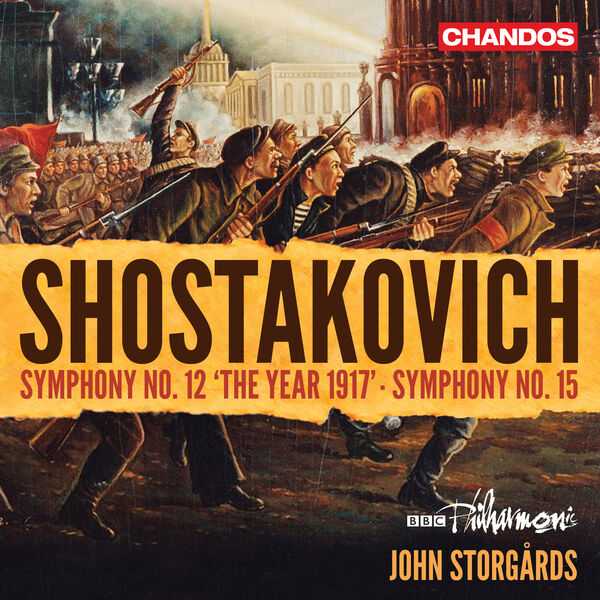

Composer: Dimitri Shostakovich
Orchestra: BBC Philharmonic Orchestra
Conductor: John Storgårds
Format: FLAC (tracks)
Label: Chandos
Catalogue: CHSA5334
Release: 2023
Size: 1.36 GB
Recovery: +3%
Scan: yes
Symphony No. 12 in D Minor, Op. 112 “The Year 1917”
01. I. Revolutionary Petrograd
02. II. Razliv
03. III. Aurora
04. IV. The Dawn of Humanity
Symphony No. 15 in A Major, Op. 141
05. I. Allegretto
06. II. Adagio
07. III. Allegretto
08. IV. Adagio – Allegretto
The BBC Philharmonic and its new Chief Conductor, John Storgårds, follow their previous release of Shostakovich’s Eleventh Symphony with this album of Symphonies Nos 12 and 15. Subtitled ‘The Year 1917’, the Twelfth Symphony was a project which Shostakovich had been planning and discussing for two decades – a symphony about Lenin. The first movement, ‘Revolutionary Petrograd’, depicts the arrival of Lenin in Petrograd in April 1917 and his meetings with the working people of the city. The second, ‘Razliv’, commemorates the site of Lenin’s retreat to the north of the city. ‘Aurora’, the third movement, refers to the Russian battleship the revolutionary mutinous crew of which fired the first shot of the attack on the Winter Palace. Finally, ‘The Dawn of Humanity’ celebrates the ultimate victory of the Great October Socialist Revolution. Musically, the Twelfth seems to regress to a more simplistic musical language than that of the immediately preceding Symphony – which some commentators ascribe to Shostakovich’s joining the Communist Party and perhaps trying harder to meet its expectations. The Fifteenth (and last) Symphony was written entirely in July 1971, at a composer’s rest home in Repino, north-west of Leningrad. It was his first non-programmatic symphony since the Tenth, and Shostakovich was wary of discussing the meaning of it, but eventually commented that it might be understood as representing the journey from life to death.